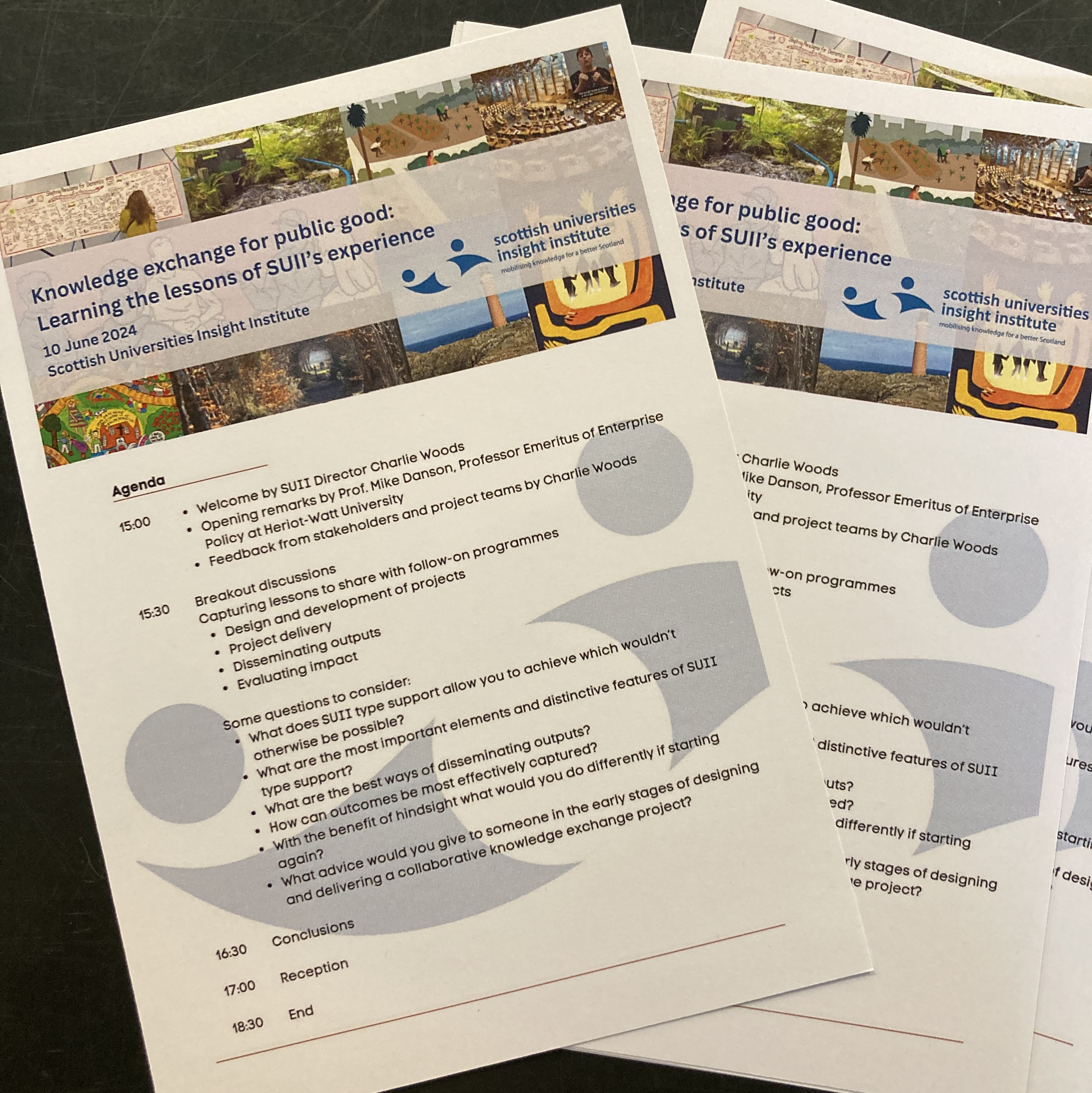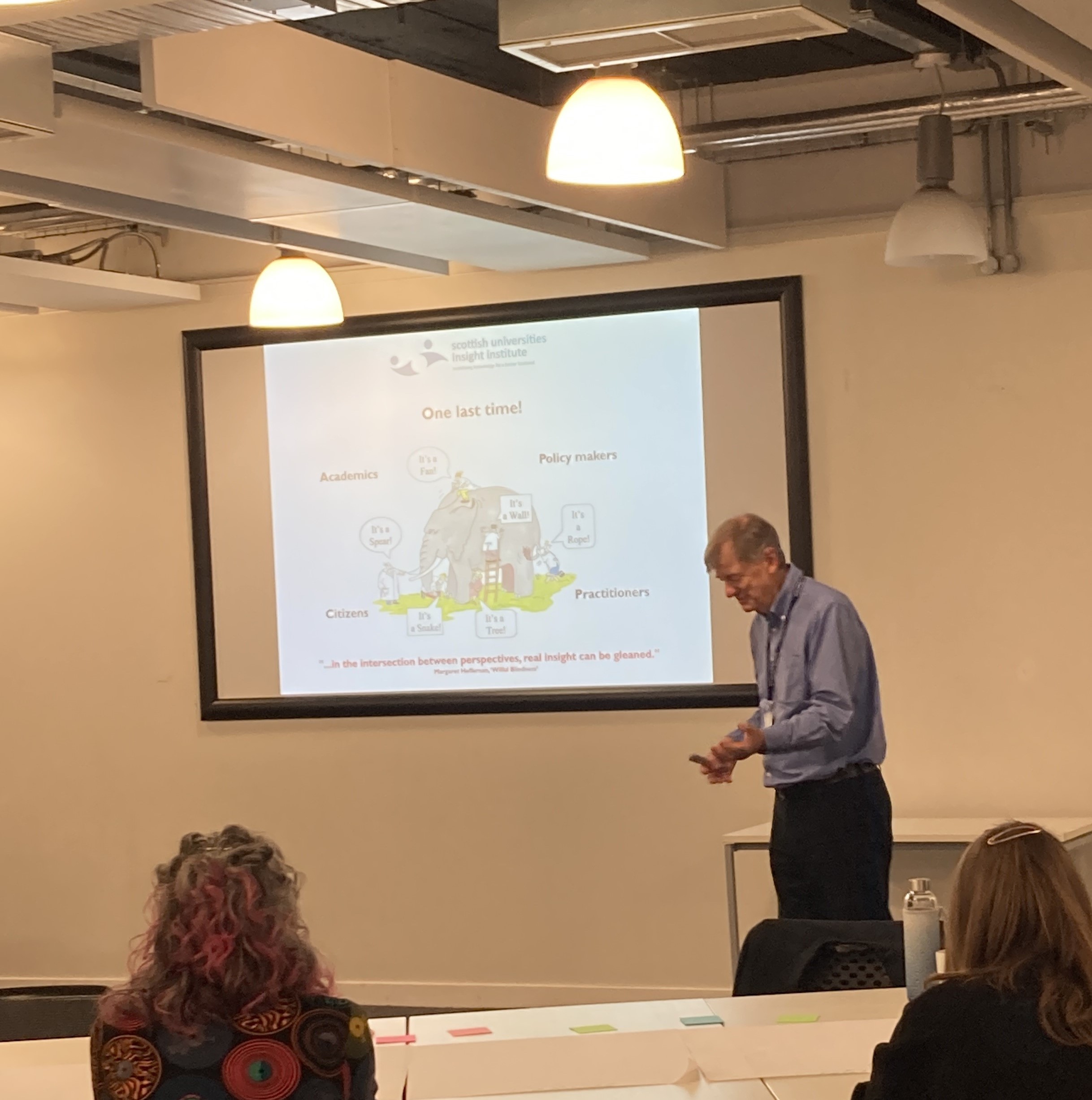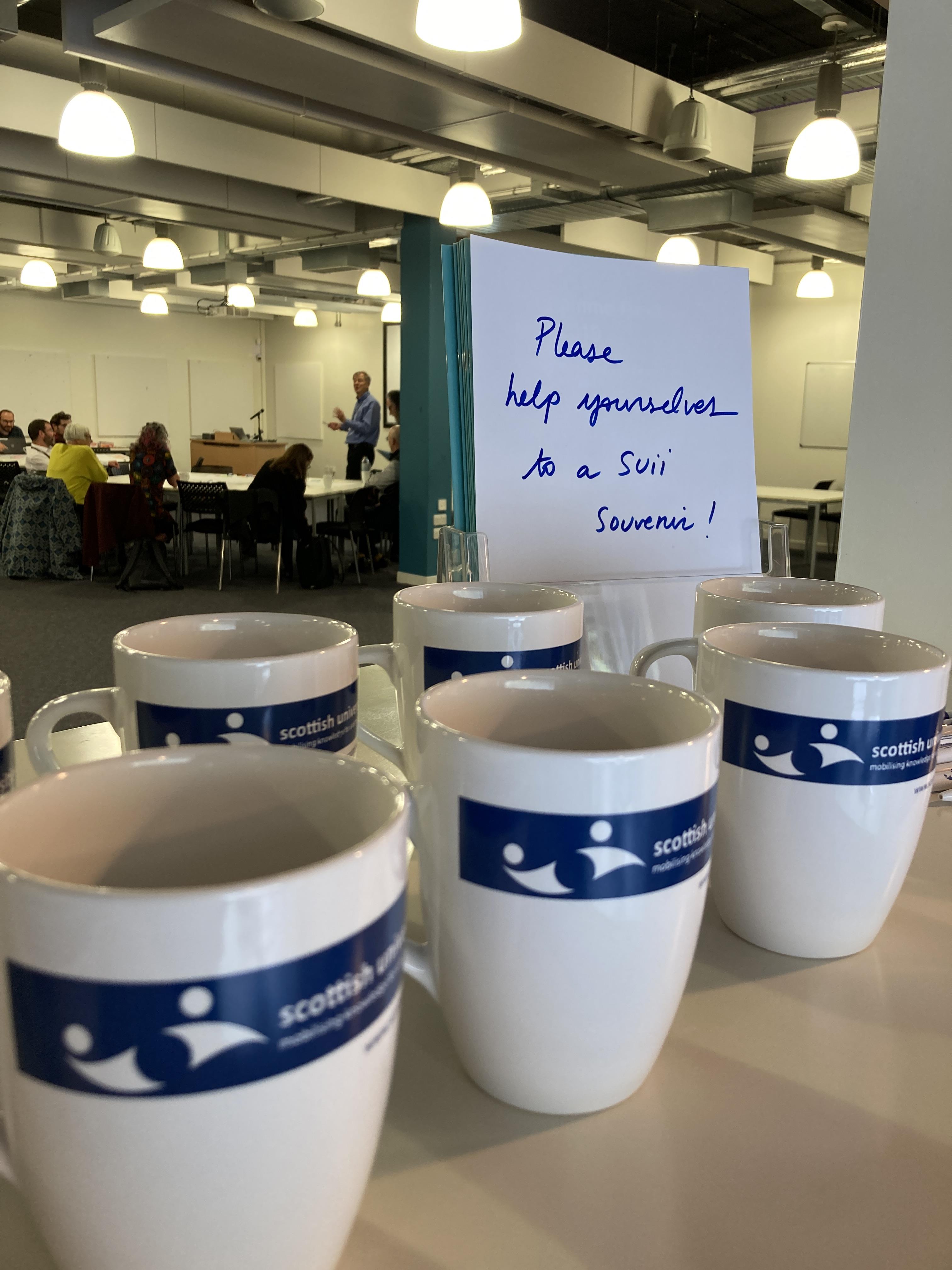 SUII’s partner universities decided to conclude its operations at the end of the academic year 2023/24. A workshop was held on 10 June 2024 to reflect on the lessons learned from SUII’s work and the projects it supported with a view to helping those involved similar types of work in the future.
SUII’s partner universities decided to conclude its operations at the end of the academic year 2023/24. A workshop was held on 10 June 2024 to reflect on the lessons learned from SUII’s work and the projects it supported with a view to helping those involved similar types of work in the future.
The workshop involved project team participants and other stakeholders and was designed to allow plenty of scope for the sharing of experience and reflection on lessons learned. SUII Director Charlie Woods introduced the event and provided a brief recap on SUII’s work along with feedback from stakeholders and a survey of project teams. Professor Mike Danson, Professor Emeritus of Enterprise Policy at Heriot-Watt University, who co-led a number of SUII projects, offered some opening remarks to help stimulate the discussion.
The workshop then explored the following topics:
- Design and development of projects
- Project delivery
- Disseminating outputs
- Evaluating impact
The experience and ideas shared under each of these topics are summarised below.
Design and development
- Start early and take time to invest in relationships – really think about who you would like to work with – confirm participants as early as possible
- Build a strong partnership and really get everyone’s input into shaping the project – co-design is key
- Involve non-academics as early as possible to ensure demand led outcomes
- Be ambitious yet realistic and focus on what’s deliverable – allow sufficient time and space for collective problem solving
- Use space to be brave and think outside the box – take risks and be innovative
- Look to involve unusual suspects in different disciplines and institutions
- Recognise the need for genuine collaboration – overcome competitive tendencies
- Take advantage of feedback at the expression of interest stage to shape proposals
- Projects can build on established research programmes and also develop new networks which may stimulate follow up research
- The collaborative design and application process is valuable in its own right regardless of the outcome
- Build in contingency plans
 Delivery
Delivery
- Focus on impact/outcomes over research
- Be flexible as projects evolve – knowledge exchange is an iterative, emergent process – make a plan and play it by ear – learn from setbacks
- Use all your networks and those of partners
- Recognise the value of the informal conversations in between more formal elements
- Take full advantage of any logistical support to focus on content
- Pay attention to capturing reflections as they arise
- Make sure everyone is speaking a ‘common language’ – think carefully about making language accessible
- Be realistic about what can be achieved in the time frame
- Make the programme attractive for a wide group of stakeholders
- Pay attention to the event environment – temperature, seating, lighting, snacks etc.
- Think carefully about what type of venue will work best
- Use social events where appropriate to strengthen networks
- Be confident and build confidence
Dissemination
- Be imaginative – involve artists and those that can engage audiences
- Involve communities who can contribute and benefit from the knowledge exchange - co-design dissemination events
- Use different media to engage more widely – different people react differently to how things are presented
- A shared website is a valuable resource for capturing outputs and reaching stakeholders
Evaluation
- Recognise the long term nature of evaluation
- Build in evaluation from the outset
- Use straightforward but regular methods to collect feedback from participants and stakeholders
- Capture more immediate outcomes (e.g. new networks, relationships) and longer term impacts that might result
- Capture ‘lightbulb’ moments
- Consider academic (research funding, publications, REF case studies, career development) alongside non-academic outcomes on policy and practice
- Recognise the contribution to developing a more positive, collaborative research culture
- Consider what role the narrative CV might play – recognise the value for early stage researchers – e.g. building confidence and developing a track record
 Thanks
Thanks
The workshop concluded by thanking all those who made SUII’s work possible, including:
- those who had the foresight to develop the SUII concept and get it started
- members of the SUII team over the years who made SUII what it is
- members of the governing board who played a vital role in guiding SUII’s work and making the difficult decisions on which projects to support
- members of project teams and project participants who were the core of SUII’s work
- researchers who applied for support, both those that were successful and those that weren’t
- co-investments partners who made it possible for SUII to do more than it otherwise could
- application reviewers
- KE teams at member universities who supported calls for proposals
- staff at Strathclyde who supported SUII’s work - in Finance, HR, Catering, Estates etc.
June 2024